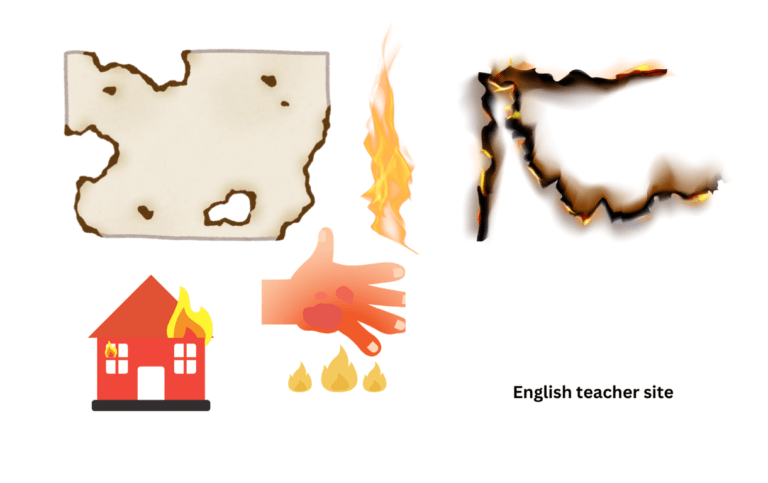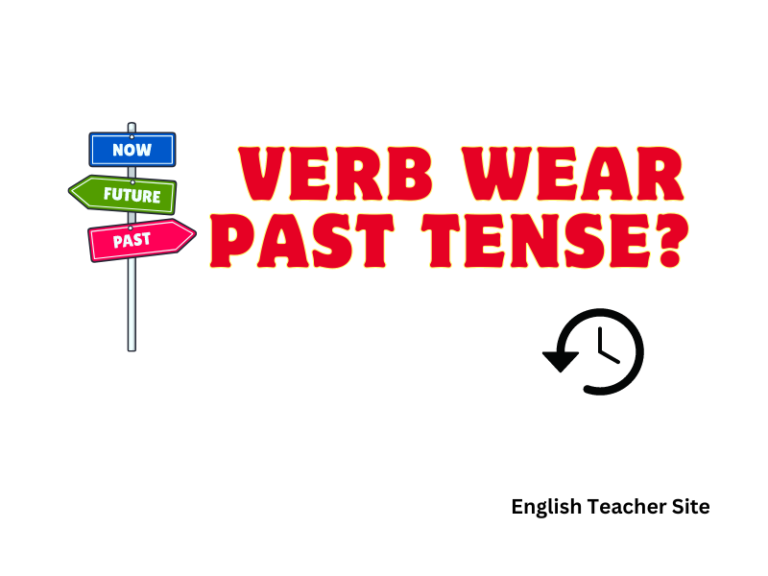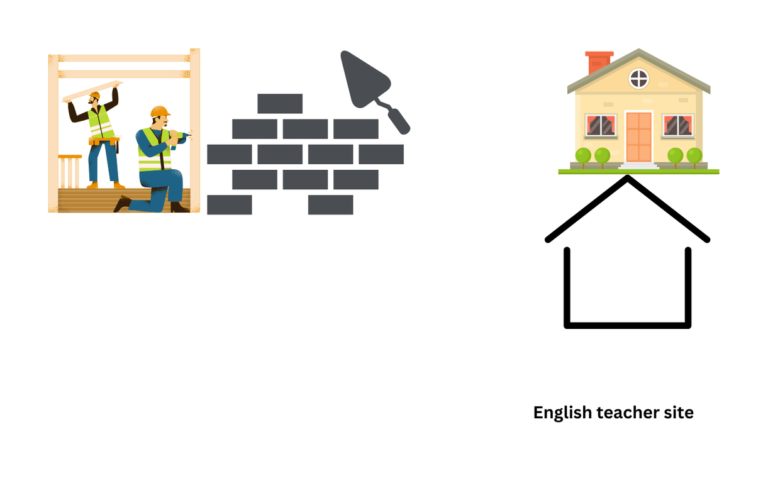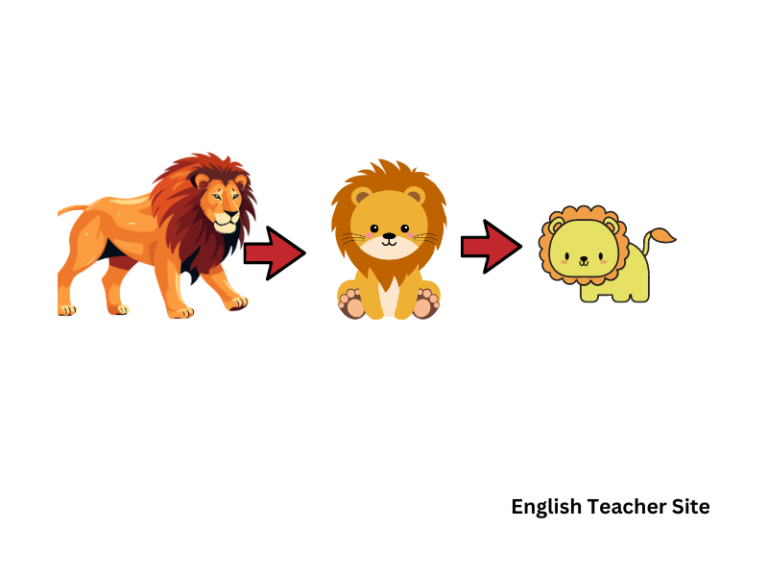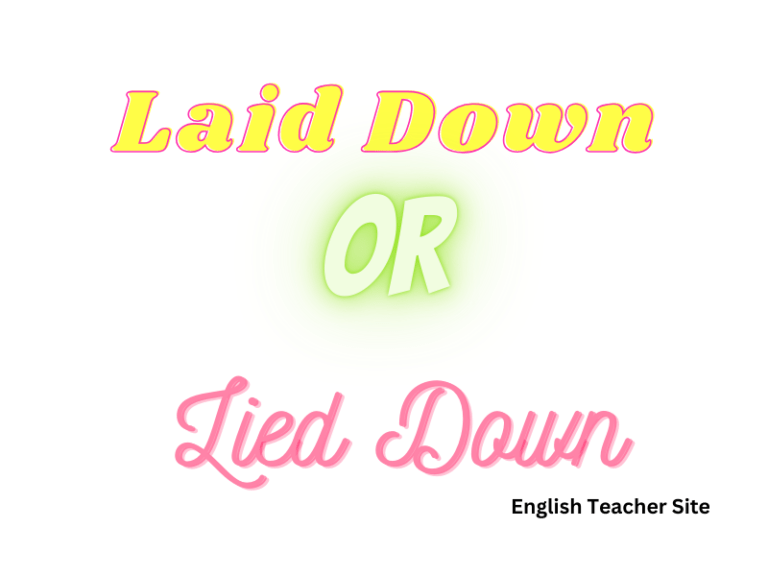Hid or Hidden Which One Should You Use and Why?
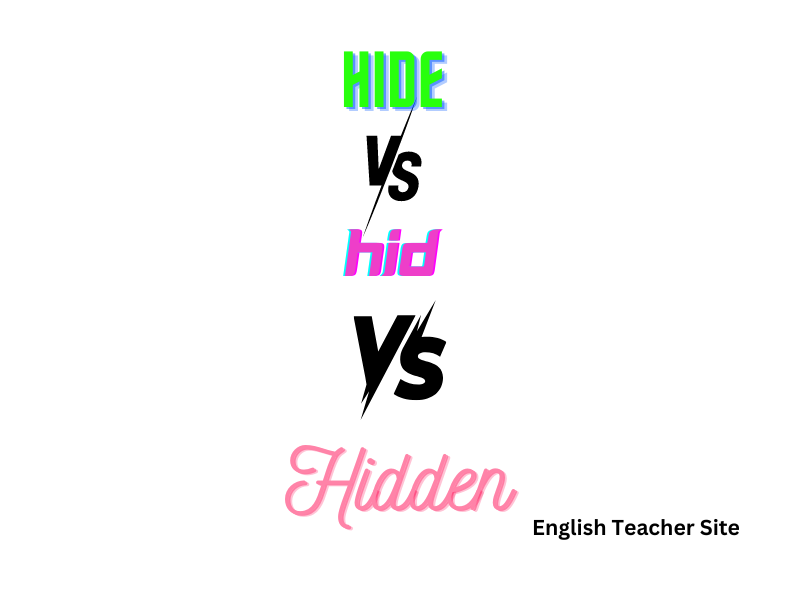
The Short Answer: Use Hid for Past Tense, Hidden for Past Participle
Choosing between hid and hidden isn’t as complicated as it seems. The distinction lies in their grammatical roles. If you’re describing an action that took place in the past and you’re not using any helping verbs, go with hid. On the other hand, if your sentence involves an auxiliary verb—like has, have, was, or been—hidden is the correct form.
Understanding the use of hid or hidden ensures your writing stays crisp, polished, and grammatically sound.
Quick Definition of Hid and Hidden
- Hid is the simple past tense of hide. It describes a completed action in the past.
- Hidden is the past participle of hide. It needs an auxiliary verb to form perfect tenses or passive voice constructions.
When You Should Choose Hid Without Hesitation
If your sentence stands on its own in the past tense without an auxiliary verb, hid is your go-to choice.
- She hid the envelope inside the book.
No helpers. No fuss. Just simple past tense.
Why Hidden Works Best with Helping Verbs
When your sentence leans on a helping verb to form perfect or passive tenses, hidden is the correct choice.
- The necklace had been hidden in the attic for decades.
Here, had been sets up the need for the past participle hidden.
Breaking Down the Grammar: Past Tense vs Past Participle
How Past Tense Verbs Function in Sentences
Past tense verbs describe actions that occurred at a specific time in the past. They stand alone and don’t rely on helping verbs.
- He hid the remote yesterday.
This sentence indicates a clear action completed in the past.
Why Past Participles Need a Helping Hand
Past participles are team players; they rarely work alone. They require auxiliary verbs to form complex tenses or passive voice structures. Without their helping verbs, sentences feel incomplete or grammatically incorrect.
- The documents have been hidden in a secure folder.
Here, have been is essential for the sentence to function.
Hid Explained: Simple Past Tense in Action
What Hid Really Means in Grammar Terms
Hid signifies an action completed in the past without any connection to the present. It answers the question, “What happened?”
- He hid the money in the flower pot.
The event is over and done with.
Clear Examples of Hid in Everyday Sentences
- They hid the spare key under the mat.
- She hid the birthday cake in the pantry.
- The cat hid behind the couch during the storm.
Common Errors with Hid (And How to Avoid Them)
One frequent mistake is pairing hid with auxiliary verbs, which results in incorrect grammar.
- Incorrect: She has hid the passport.
- Correct: She has hidden the passport.
The fix? If there’s a helper, hidden must follow.

Hidden Unlocked: The Power of the Past Participle
What Makes Hidden Different from Hid
Hidden is the form used with auxiliary verbs to create complex verb tenses or passive voice sentences. It doesn’t typically appear by itself in active voice constructions.
How to Spot When Hidden is the Right Choice
Look for helping verbs like has, had, was, were, been, or is. These signal that hidden should be used.
- The artwork had been hidden behind a false wall.
Examples of Hidden in Professional and Creative Writing
- The files were hidden beneath layers of encryption.
- A coded message has been hidden inside the manuscript.
- The entrance to the cave was hidden by dense foliage.
Common Missteps with Hidden and How to Fix Them
- Incorrect: The contract hidden in the drawer.
- Correct: The contract was hidden in the drawer.
Fix these by inserting the necessary auxiliary verb. It creates grammatical integrity.
Hid vs Hidden: How to Always Get It Right
Quick Comparison: When to Use Each Form
- Use hid for simple past: Yesterday, he hid the letter.
- Use hidden with auxiliaries: The letter has been hidden for weeks.
How Time and Context Determine the Right Choice
If you are discussing a specific, completed action in the past—no helping verb required—hid is the answer.
If your sentence connects the past to the present or uses passive voice, hidden steps in.
Practical Examples Showing the Difference
- She hid the diary during the inspection. (Simple past)
- The diary has been hidden in the drawer ever since. (Present perfect)
Tricky Sentences That Confuse Even Skilled Writers
- Incorrect: The treasure was hid in the cave.
- Correct: The treasure was hidden in the cave.
Passive constructions demand hidden, not hid.
One-Minute Quiz: Can You Choose the Right Word?
- She ___ the blueprint under her coat. (Hid)
- The blueprint has been ___ in a secure vault. (Hidden)
- The sculpture was ___ from public view for decades. (Hidden)
- They ___ the evidence before anyone noticed. (Hid)
Frequently Asked Questions
Is Hid Ever Interchangeable with Hidden?
No. Their grammatical functions are distinct. Swapping them creates errors.
Why Does Hidden Always Seem More Formal?
Because it often appears in passive voice and perfect tenses, hidden carries a tone of formality or complexity, particularly in academic or professional contexts.
How Can I Practice Until It Becomes Second Nature?
Engage in regular writing and proofreading exercises. Read extensively, paying attention to verb forms. Practice rephrasing sentences to understand how hid and hidden change the sentence structure.
Conclusion: Mastering Hid and Hidden for Clear, Confident Communication
Precision in verb usage enhances clarity and boosts your credibility, whether in professional communication or creative writing.
Final Reminders That Will Keep You on Track Every Time
- Hid for simple past with no helper.
- Hidden with helpers like has, had, or was.
- When in doubt, look for auxiliary verbs—they’re your clue.
Master these guidelines, and you’ll write with confidence and precision every time.
Source
1. Harper Douglas, “Etymology of hide,” Online Etymology Dictionary, https://www.etymonline.com/word/hide
2. “Hide.” Farlex Dictionary of Idioms. https://idioms.thefreedictionary.com/hide
My name is Khamis Maiouf. I am the creator of the English Teacher Site, dedicated to providing valuable resources and insights for students around the world. With a passion for education and a commitment to helping students enhance their skills, I aim to make English teaching more effective and enjoyable for both educators and students.

